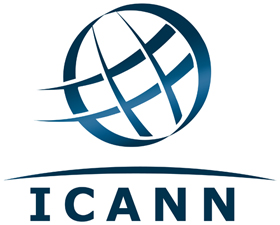|
|
|

|
|

|
|
|
Here's the The Lowdown
from DN Journal,
updated daily
to
fill you in on the latest buzz going around the domain name industry.
The Lowdown is
compiled by DN Journal Editor & Publisher Ron
Jackson. |

|
|
|
|
|
|
|
Forbes
Contributor Says Compatibility Issues Could Be Bigger Threat
to New gTLDs Than Lack of Awareness
|
|
Overall
new gTLD registrations
haven't
been as robust as many
registry operators had hoped a year
after the first wave of new
extensions hit the web. With
hundreds of new gTLDs fighting for a
piece of the relatively small
pie that .com and other
long established extensions
haven't locked up
already, it's tough out
there. Still, many operators believe
better marketing efforts that
are now getting underway from major players
like Donuts will raise
public awareness of the new options
and significantly boost sales.
Today,
an article
by Forbes.com contributor
Roger
Kay pointed out a roadblock
that could be an even bigger threat
to new gTLDs than low recognition -
a lack of universal
compatibility with some key
components of the web
itself. Kay wrote, "a lot of
the new domain names
|

|
|
don’t work
with existing devices and
software. Browsers don’t
handle the new suffixes consistently
or as expected, mail systems
sometimes reject them as invalid,
and some enterprise software
generates unpredictable errors,
which may requiring significant
revisions to fix."
|
|
|

|
While
I wasn't aware this kind of of
potentially debilitating situation
existed , Kay said ICANN has
known about it all along,
writing, "Ram Mohan,
who sits on the Security
and Stability Advisory
Committee, said
the problem has been known
to ICANN since at least 2003
and remains unaddressed."
Kay continued, "At an
ICANN meeting in Singapore in
February, a working group
charged with sorting out the
problem of “universal
acceptance” admitted
that the prospect of mass
incompatibility is scary.
Brent London,
Google's representative in
the working group, put
it pretty
straightforwardly: “New
types |
|
of
domains and email addresses break
stuff. Just to send
an email from one person to
another, you’d find yourself
in a situation where an
operating system, mail
servers, routers, mail service
providers, security software,
all need to work properly.”
And with the new suffixes, sometimes they
don’t." |
Kay
added that a fix is still a long way
off noting "During the final
portion of the ICANN presentation, Christian
Dawson of the Internet
Infrastructure Coalition, in
proposing that a Universal
Acceptance Steering Group be
formed, noted that its work should
be envisioned to take 10 years...
That’s a fair stretch to wait for
the responsibles to untangle this
hairball."
Kay
believes ICANN is exacerbated the
problem by letting far too many
TLDs be released at the same
time and advised the governing body
to slow down the pace of new gTLD introductions
while the compatibility issues are
worked through. It is well worth
reading his full
article to familiarize
yourself with the issues Kay
raised. It is certainly a
sobering piece that could scare off
a lot of potential registrants,
especially in the corporate world
where IT related changes are made at
a glacial pace to begin with.
|
Still,
I would imagine compatibility
issues vary considerably from
one new gTLD to another. Those
who have few if any issues may
do well to make that a selling
point in their increased
marketing efforts (perhaps by
publishing favorable results
from extensive testing of
their extensions). As many
have predicted from the start,
the new gTLD program will have
both winners and losers. In
light of this story (and the
greater attention that will be
paid to these issues going
forward as a result), the
winners will likely need more
than just a particularly
attractive string and a
healthy marketing budget -
they will also need to be able
to assure customers
their TLDs won't create
unexpected headaches for those
who use them. Those who can do
that will have a leg up
in a field that is already
flooded with competitors with
many more on the way. |

Reliability
graphic from Bigstock |
|
Editor's
Note: After
publication of this article I
was informed that the author
of the Forbes.com piece had
previously disclosed (in
another of his articles for
Forbes in September
2013 - that his
company, Endpoint, had a
consulting relationship with
Verisign, the
administrator of the .com
and .net TLDs). New
gTLDs obviously represent
competition to Verisign's
extensions. Thus far no one
has questioned the points Kay
raised in the article about
there being potential
technical issues with some of
the new gTLDs, but when a
relationship like this exists
readers should know about it. |
|
|
|
|
|
|
|
|
(Posted
March 24, 2015)
|
|

|
|
|
|
|
|
|
For
all current Lowdown posts - Go
Here
|
|
We need your help to keep giving
domainers The
Lowdown, so please email [email protected]
with any interesting information you might have. If possible,
include the source of your information so we can check it out (for
example a URL if you read it in a forum or on a site
elsewhere).
|
|
|
Home
Domain Sales
YTD Sales Charts
Latest
News The Lowdown
Articles
Legal Matters Dear Domey
Letters
to Editor Resources
Classified Ads
Archive
About Us |
|

|
|
|